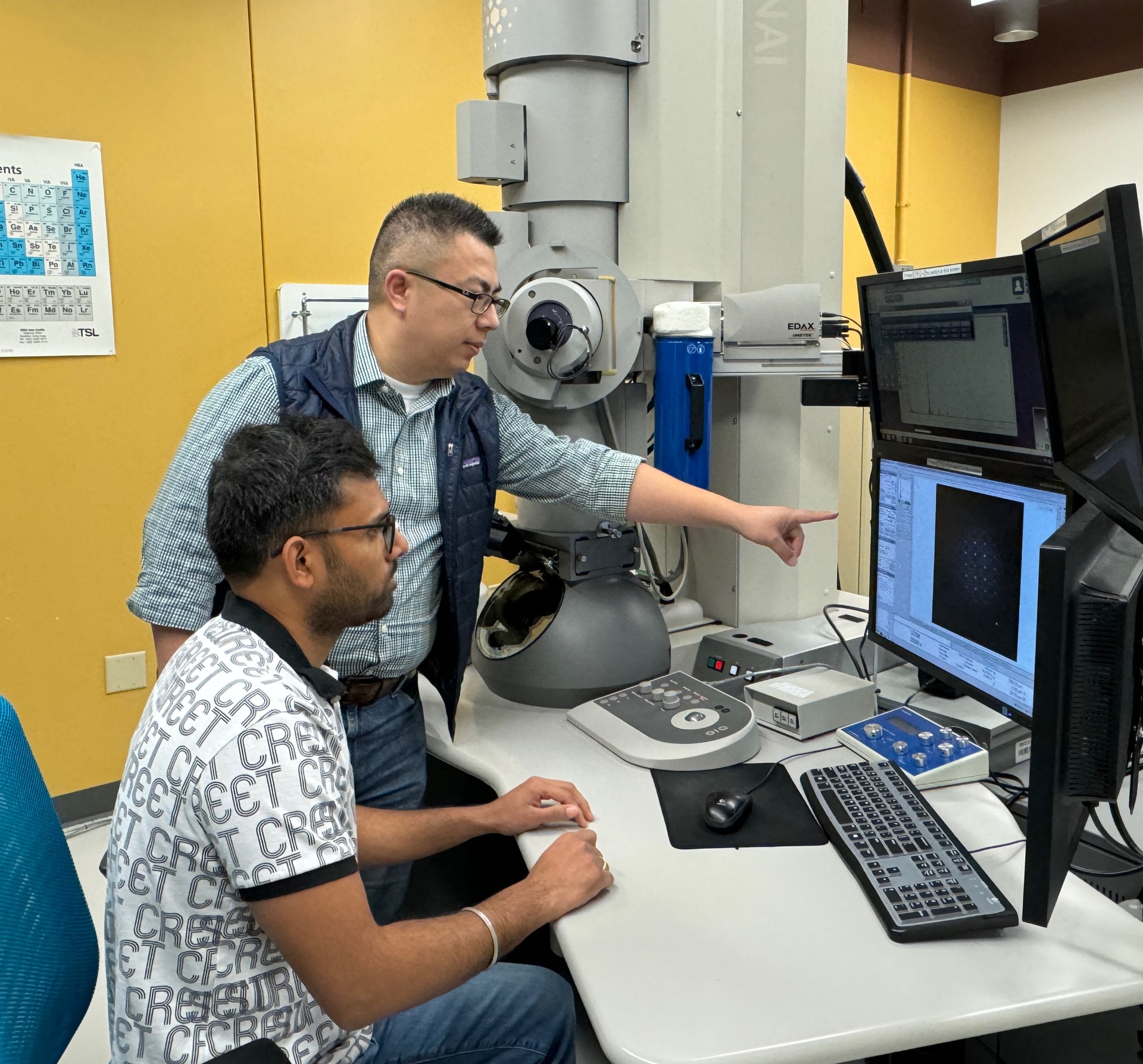Awardees:
- Yufeng Zheng, principal investigator and associate professor in the UNT Department of Materials Science and Engineering
- Liang Qi, associate professor in the University of Michigan Department of Materials Science and Engineering
- Yang Chen, associate professor in the University of Michigan Department of Statistics
- Feng Yan, associate professor in the Arizona State University School for Engineering of Matter, Transport and Energy

Sponsor: U.S. National Science Foundation’s Designing Materials to Revolutionize and Engineer our Future (DMREF) program
Award Total: $499,916
About the Research: Zheng, associate director of UNT’s Materials Research Facility, is collaborating with researchers from the University of Michigan and Arizona State University to expand on current knowledge of alloy discovery and speed up the process with the help of artificial intelligence. The project is part of the U.S. National Science Foundation’s DMREF program meant to encourage research that takes advantage of data and computational tools to advance materials design.
Alloys are components made of a mix of metals used to craft thousands of items from engines and aircraft bodies to kitchen utensils and doorknobs. The teams will help in the discovery of new ultrastrong and ultraelastic alloys that can be used in multiple industries, including aerospace and aviation, automotive manufacturing and biomedical devices.
Zheng and his collaborators will train an AI model to sift through massive sets of materials processing data and then visualize the data for researchers to use. To train the AI model, they’ll create real and simulated alloys based on the AI’s data suggestions. They’ll then feed data from the created alloys and simulations back into the AI model and repeat the process. The team will share their results through Materials Commons, a public repository and collaboration website for materials studies, making the results easily accessible worldwide.
Each university’s research team will consist of undergraduate and graduate students from diverse backgrounds. Faculty will host educational and outreach activities to draw in more students on the project and into the materials science and engineering field.
Impact Goal: “A physics-based AI-enabled automated research flow will revolutionize the strategy for designing new multi-component alloys,” Zheng says. “For example, we could quickly find a new alloy to reduce the overall weight of an engine while maintaining high strength and durability. This would contribute to enhanced fuel efficiency and reduced emission of greenhouse gases.”
